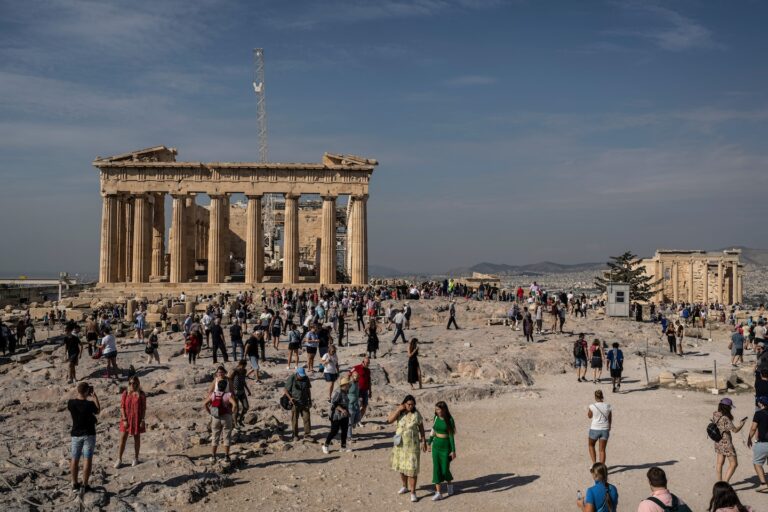Ticket prices remain the same as before the launch of the new system: 20 euros (approximately $21) for general admission and 10 euros (approximately $11) for non-EU citizens aged 6 to 25 and seniors from the EU over 65 years old. Tickets are free for anyone under 5 years old and for EU citizens up to 25 years old.
According to the e-ticketing site, visitors must arrive at the entrance 30 minutes before the scheduled time slot. Ticketed customers will be allowed entry 15 minutes before and up to 15 minutes after their scheduled time (except for the last time slot of the day, which does not allow entry after the scheduled time). ‘scheduled time).
Ioannis Giannakakis, CEO and co-founder of Athens Walking Tours, said the system was “simple and well designed”, but said there had been challenges on the first day at the Acropolis. People arrived at the venue unaware of the change, carrying tickets they had purchased in advance on other websites, he said.
Giannakakis says the Greek tourism industry has been discussing solutions to the problems of overtourism for years. He says discussions to limit visitors to the Acropolis began before the pandemic, but were put on hold when tourism plunged in 2020.
The World Travel and Tourism Council expects Greece to return to pre-pandemic levels This year. Lina Mendoni, Greece’s culture minister, said recently that visits to the Acropolis in June and early July had increased. 80 percent compared to the same period in 2019. The site is also closed to visitors this summer, in stifling heat.
Konstantinos Polatidis, brand director of Apollo Palm Hotel Athenshopes the new ticketing system will help promote responsible tourism and perhaps encourage travelers to explore the city off the beaten track.
“We have seen extraordinary tourism demand this summer, and it extends into September and October as well,” Polatidis said in an email. “We are almost sold out through October and tourism throughout the city continues to increase.”
The Acropolis is one of several European tourist sites to introduce timed tickets or caps on visitors in a bid to contain crowds. Others include the Louvre in Paris and the Pantheon in Rome.
THE Acropolis Museumwhich is near the ruins, was already using the timed ticketing system to control visitor numbers, and Giannakakis says more Greek sites are expected to implement it in the coming years.


